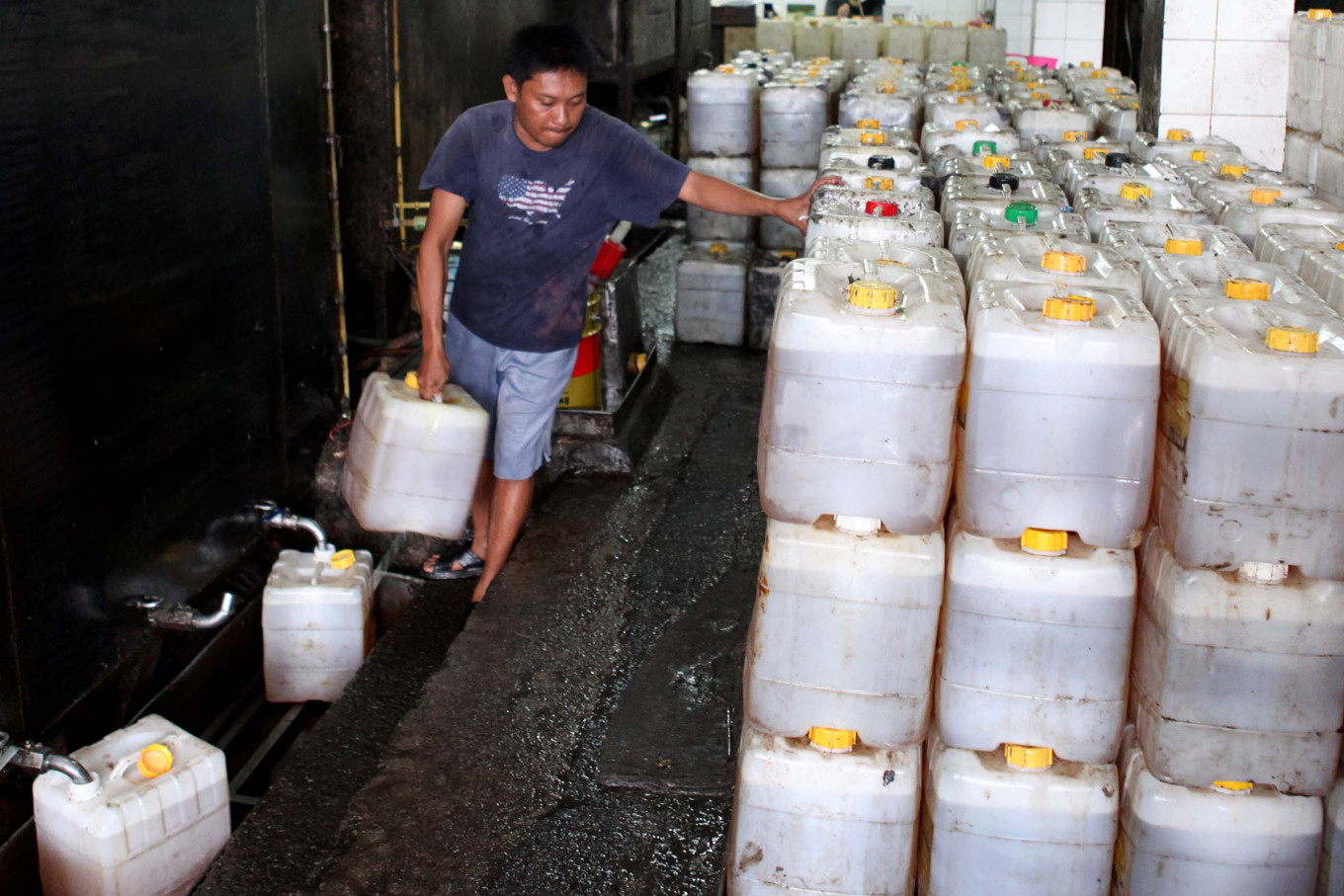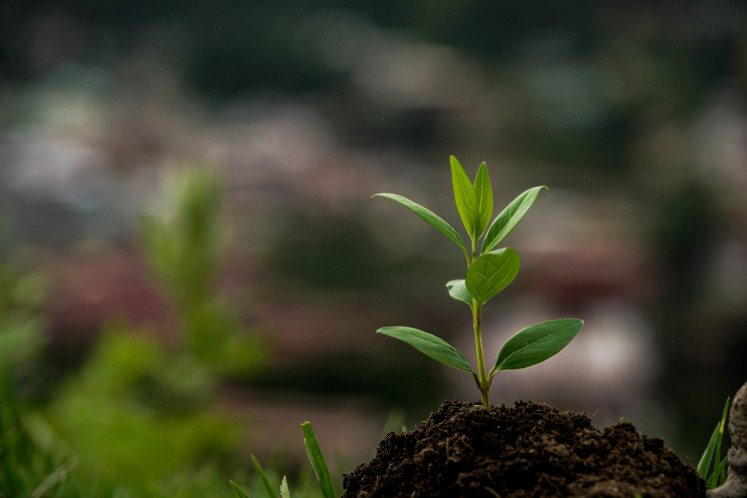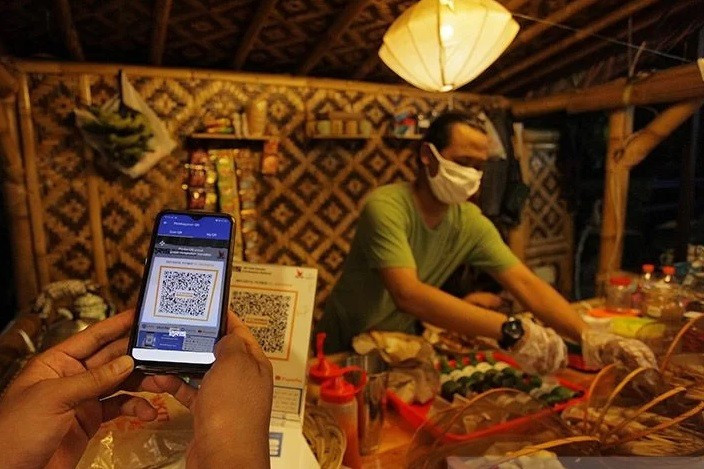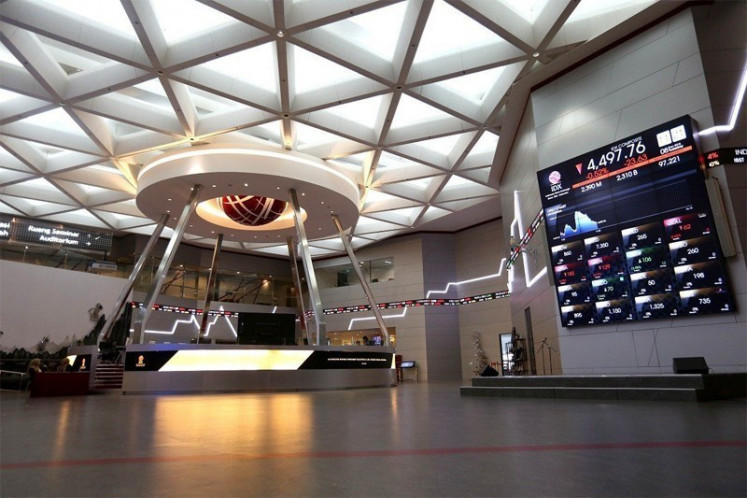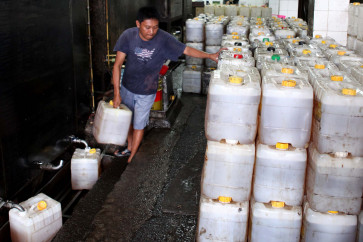Popular Reads
Top Results
Can't find what you're looking for?
View all search resultsPopular Reads
Top Results
Can't find what you're looking for?
View all search resultsAnalysis: Palm oil graft case enters new phase with minister Airlangga interrogation
Change text size
Gift Premium Articles
to Anyone
R
ecent developments in the investigation of a corruption case that has been blamed for contributing to a domestic cooking oil shortage last year has led to Coordinating Economic Minister Airlangga Hartarto being questioned by the Attorney General’s Office (AGO). Prior to Airlangga’s interrogation, three palm oil companies had been named new suspects in the case.
The three companies, Wilmar Group, Permata Hijau Group and Musim Mas Group were named suspects by the Supreme Court for alleged misconduct in obtaining crude palm oil (CPO) export permits at a time when shipments of the commodity were being restricted during the cooking oil scarcity period. The Supreme Court also increased the prison sentence of the companies’ executives earlier this year for conspiring to secure the export permits, namely Master Parulian Tumanggor of PT Wilmar Nabati Indonesia, Stanley Ma of Permata Hijau Group and Pierre Togar Sitanggang of PT Musim Mas, plus an assistant to Airlangga, Lin Che Wei for helping the three companies get export permits.
Though the court found these individuals guilty, the court’s justices also view the executives’ actions as belonging to their respective companies. According to the justices, the companies were the ones who benefit from the illegal gains; therefore, they must also be held accountable and take responsibility for restoring the state losses caused by their alleged criminal acts. The AGO estimates the country’s loss to reach up to Rp 6.47 trillion (US$431.38 million).
Seeking further examination into the three companies’ involvement in the case, the AGO subsequently turned to CPO export-related policies implemented from January 2021 to March 2022, the period when the corruption took place. The AGO mentioned that it would dig for information on the case from an evaluation and implementation standpoint, given how the CPO export-related policies had enabled the large financial losses to happen to the country.
Consequently, as the Coordinating Economic Minister and respective policymaker, Airlangga was called in for questioning on Jul. 25. Airlangga reportedly underwent a 12-hour interrogation, where investigators sought information on the minister’s policies in handling the cooking oil storage, which led President Joko “Jokowi” Widodo to temporarily ban exports of CPO and its derivates. The policies introduced to address the issue included a domestic market obligation (DMO) policy, which required CPO exporters to allocate at least 20 percent of their produce for the domestic market.
To this end, AGO director of investigation for special crimes Kuntadi emphasized that Airlangga’s recent interrogation was only to confirm his position and duty. Deciding Airlangga’s involvement in the case at this time, according to Kuntadi, would be considered too premature as investigators are still observing the development of the investigation and need time to examine the legal facts.
Jokowi has since responded to Airlangga’s questioning, simply mentioning that the legal process must be respected anywhere, whether “at the Corruption Eradication Commission (KPK), the National Police or at the AGO, everyone has to respect it [the legal process]”. However, the investigation into Airlangga’s role in the cooking oil graft case has seemingly exacerbated the minister’s faltering political position as chairman of the Golkar Party.

